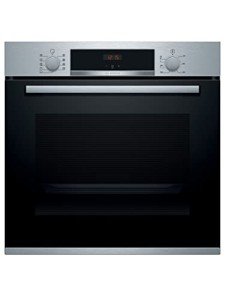How To Identify The Intergrated Cooker To Be Right For You
The Integrated Cooker: A Comprehensive Guide to Modern Cooking Solutions
The advancement of kitchen appliances has actually changed food preparation and cooking techniques, making meal preparation more efficient and satisfying. Among these developments, the integrated cooker stands apart as a flexible and space-saving addition to contemporary kitchen areas. This post looks into the different aspects of integrated cookers, including types, advantages, features, and a comparison with standard cooking techniques.
What is an Integrated Cooker?
An integrated cooker is a compact cooking appliance that combines multiple cooking functions into one system. Typically built into kitchen cabinets, these cookers are created to save area while boosting kitchen aesthetics. They typically incorporate a variety of performances, such as baking, barbecuing, steaming, and even pressure cooking.
Secret Features of Integrated Cookers
- Multi-Functionality: Integrated cookers can perform various cooking tasks, removing the requirement for several appliances.
- Space-Saving Design: These cookers fit seamlessly into kitchen units, making them ideal for modern-day homes with minimal space.
- Advanced Technology: Many integrated cookers come equipped with clever innovation, such as programmable settings, touch-screen controls, and connection choices.
- Energy Efficiency: Built with modern-day materials and style, they typically take in less energy compared to traditional cooking techniques.
Types of Integrated Cookers
The market provides different kinds of integrated cookers, each with its special set of functions and functionalities. Here are the most common types:
Type
Description
Example Use
Built-in Ovens
Ovens that are fitted into wall systems or kitchen cabinetry
Baking bread, roasting meats
Induction Hobs
Cooktops that use electromagnetic energy to heat pots and pans
Rapidly boiling water, sautéing
Steam Ovens
Appliances that cook food using steam for much healthier outcomes
Steaming veggies, fish
Microwave Ovens
Integrated microwaves for fast heating and cooking
Reheating leftovers, making popcorn
Mix Ovens
A mix of conventional and steam cooking innovations
Baking while ensuring moisture retention
Advantages of Using Integrated Cookers
Integrated cookers provide a host of benefits over traditional cooking tools. Below are some of the key benefits:
- Space Efficiency: Ideal for compact kitchens, integrated cookers utilize vertical spaces successfully.
- Structured Cooking Process: With several functions offered, users can shift from one cooking approach to another with very little effort.
- Improved Aesthetics: Many integrated cookers come in smooth designs that blend well with contemporary kitchen decor.
- Enhanced Cooking Control: Programmable features permit exact cooking, ensuring much better meal outcomes.
Integrated Cookers vs. Traditional Cooking Appliances
When considering meal preparation options, it is vital to weigh the benefits of integrated cookers versus traditional cooking appliances. Below is a comparison chart:
Feature
Integrated Cooker
Traditional Appliances
Area Efficiency
High
Lower
Multi-Functionality
Yes
No (needs numerous appliances)
Energy Consumption
Often lower
Can be higher
Cooking Speed
Faster (particularly with induction)
Varies
Design
Modern and sleek
Differs commonly
The integrated cooker is a forward-thinking appliance that satisfies the demands these days's busy way of life. Its multiplicity of functions, space-saving design, and streamlined aesthetics make it a beneficial financial investment for any modern kitchen.
For those wanting to conserve time, space, and effort in meal preparation, integrated cookers use an excellent service that boosts the cooking experience while providing yummy, well-prepared meals.
Often Asked Questions (FAQs)
1. What is the average rate of an integrated cooker?
The price of integrated cookers can differ extensively, usually ranging from ₤ 500 to ₤ 3,000 depending upon functions, brand, and size.
2. Just how much upkeep do integrated cookers require?
Maintenance often includes regular cleaning of surface areas and looking for any software application updates if they include smart innovation. It's suggested to follow the manufacturer's guidelines.
3. Can I change my existing oven with an integrated cooker?
Yes, integrated cookers can typically change standard ovens, however it is necessary to consult with an expert to ensure compatibility with your kitchen layout.
4. Are integrated cookers challenging to set up?
Installation can be uncomplicated for those with DIY experience. However, employing a certified specialist is recommended to guarantee proper setup.
5. Who benefits integrated gas oven and hob from using an integrated cooker?
Households, time-pressed individuals, and those residing in compact homes particularly gain from the multi-functionality and space-saving design of integrated cookers.
In this age of benefit and performance, integrated cookers are redefining how we approach food preparation. Whether you are a knowledgeable chef or a cooking beginner, incorporating this powerful device into your kitchen can significantly improve your culinary experience.
